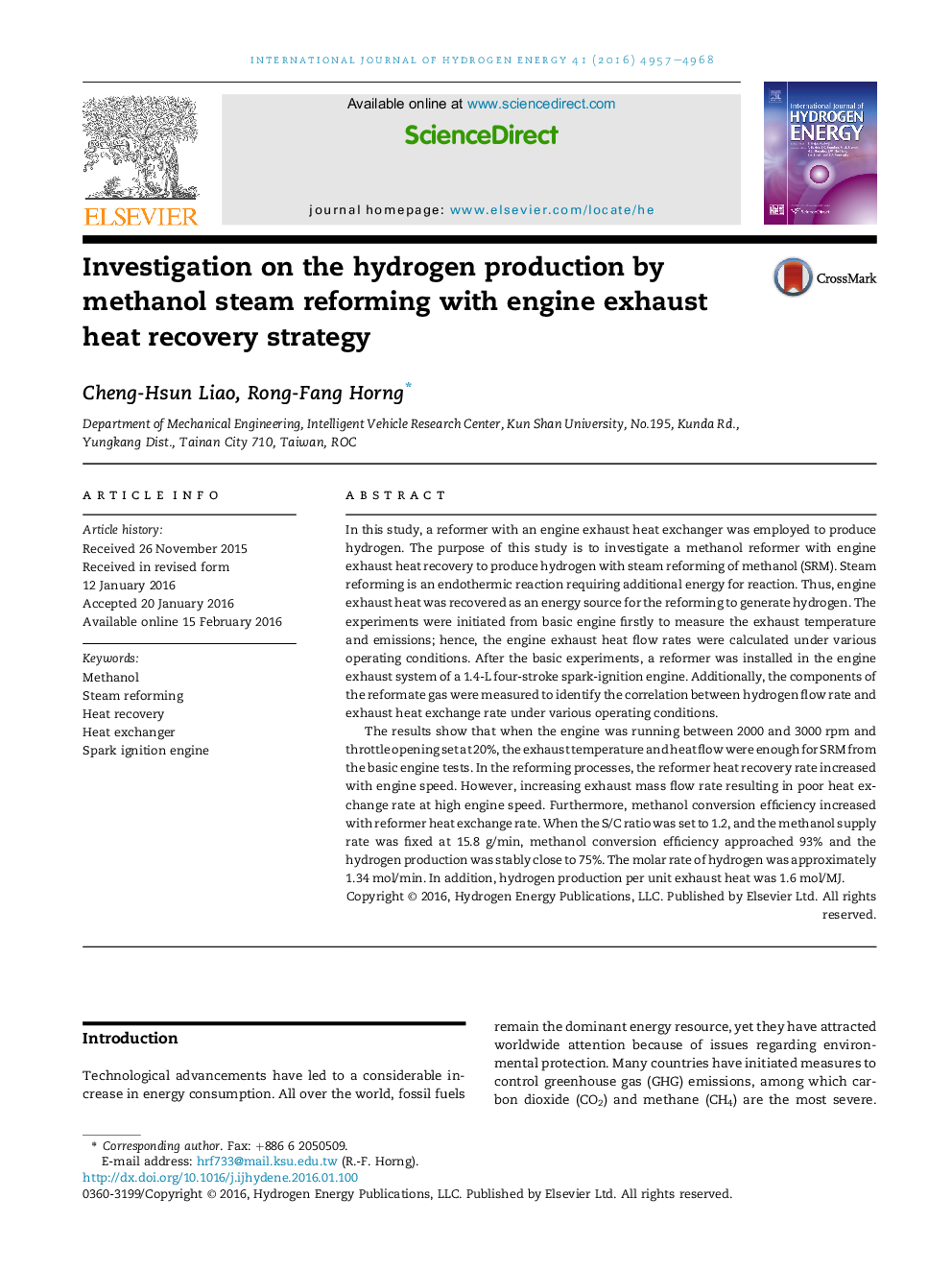| Article ID | Journal | Published Year | Pages | File Type |
|---|---|---|---|---|
| 1268861 | International Journal of Hydrogen Energy | 2016 | 12 Pages |
•Methanol steam reforming system with exhaust heat recycling system was studied.•Hydrogen was generated through steam reforming of methanol-water reactions.•The methanol conversion efficiency increases with the reformer heat usage rate.•Hydrogen production approaches a stable value as temperature is around 260–280 °C.
In this study, a reformer with an engine exhaust heat exchanger was employed to produce hydrogen. The purpose of this study is to investigate a methanol reformer with engine exhaust heat recovery to produce hydrogen with steam reforming of methanol (SRM). Steam reforming is an endothermic reaction requiring additional energy for reaction. Thus, engine exhaust heat was recovered as an energy source for the reforming to generate hydrogen. The experiments were initiated from basic engine firstly to measure the exhaust temperature and emissions; hence, the engine exhaust heat flow rates were calculated under various operating conditions. After the basic experiments, a reformer was installed in the engine exhaust system of a 1.4-L four-stroke spark-ignition engine. Additionally, the components of the reformate gas were measured to identify the correlation between hydrogen flow rate and exhaust heat exchange rate under various operating conditions.The results show that when the engine was running between 2000 and 3000 rpm and throttle opening set at 20%, the exhaust temperature and heat flow were enough for SRM from the basic engine tests. In the reforming processes, the reformer heat recovery rate increased with engine speed. However, increasing exhaust mass flow rate resulting in poor heat exchange rate at high engine speed. Furthermore, methanol conversion efficiency increased with reformer heat exchange rate. When the S/C ratio was set to 1.2, and the methanol supply rate was fixed at 15.8 g/min, methanol conversion efficiency approached 93% and the hydrogen production was stably close to 75%. The molar rate of hydrogen was approximately 1.34 mol/min. In addition, hydrogen production per unit exhaust heat was 1.6 mol/MJ.
